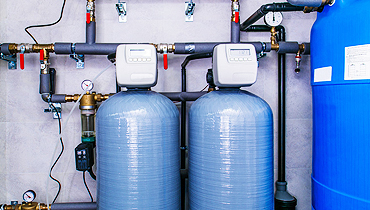Water Filtration

Water Filtration
Unfiltered water can contain a variety of impurities, such as dirt and chemicals, to microbes like bacteria and viruses that could potentially make you sick. Filtering your water can help remove these impurities and improve the taste of your water.
Benefits to water filtration:
- Improved Health and Wellness – Clean, filtered water is safe to drink and healthier than unfiltered tap or spring water.
- Protect your family’s health.
- Improved Taste – Water tastes better. Get rid of bad tastes from chlorine, pesticides and other contaminants that adversely affect taste.
LOWERING CHLORINE
Your water can taste, smell or look bad for many reasons. Chlorine is a chemical used in many municipal water treatment systems, and is often added to tap water as part of the disinfection process. While chlorine helps kill bacteria and viruses and makes water safe to drink, it can also make drinking water unpleasant. Our activated carbon filters can remove the taste and odor of chlorine from your drinking water.
PESTICIDE AND CHEMICAL REMOVAL
Pesticides and Chemicals can get into the water supply from improper disposal, industrial activities or natural contamination. Modern pesticides contain chemicals that dissolve in water and can pollute our drinking water. Consider an activated carbon filter if you’re concerned about pesticides and other chemicals in your drinking water. This filter uses activated carbon to remove over 80 different pesticides and dangerous chemicals to create clean, great tasting water for you whole family.
REMOVING DANGEROUS LEAD
If you rely on well water, health agencies recommend that you have your well tested at least once a year for lead and other contaminants. Lead can seep into the water supply from old plumbing pipes or the solder used to join them together, so it’s important to remove it from drinking water. Reverse osmosis filters, distillation and carbon filters designed specifically to remove lead are effective options to help keep your family safe.
PATHOGEN REMOVAL
Drinking safe water is of great importance, but some parasites like Giardia and Cryptosporidium can still get through even the best water filter. These pathogens are effectively removed by passing water through micro-, ultra-, and nano- filters.
SEDIMENT REMOVAL
Sediments are made up of tiny particles, such as silt, sand and clay. Sediment can create unpleasant tastes in water, but it isn’t usually a health risk. Although we always recommend our customers buy a whole house unit or a point of use system that utilizes multiple stages of filters and media to remove sediment from their water supply. However, if you are just looking to remove sediment from your home water supply, a single stage sediment filter may be sufficient to reduce sediment content in your drinking water.
Mechanical filters are used to remove particles in water, such as dust, sand, silt and clay. They can clog up your plumbing system and reduce the efficiency of your appliances that use water, though.
REDUCING MINERALS
Iron, calcium and other minerals can cause drinking water to taste unpleasant and can even discolor your dishes, stain your clothes and sink fixtures. Water with high mineral content can even clog up pipes, lowering the water pressure and causing additional problems.
